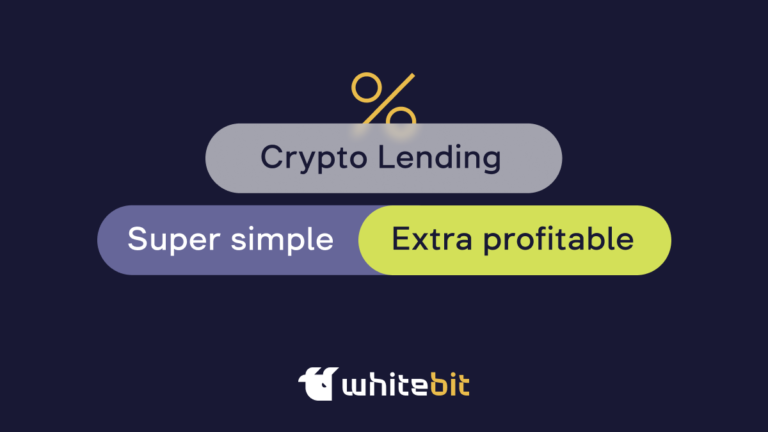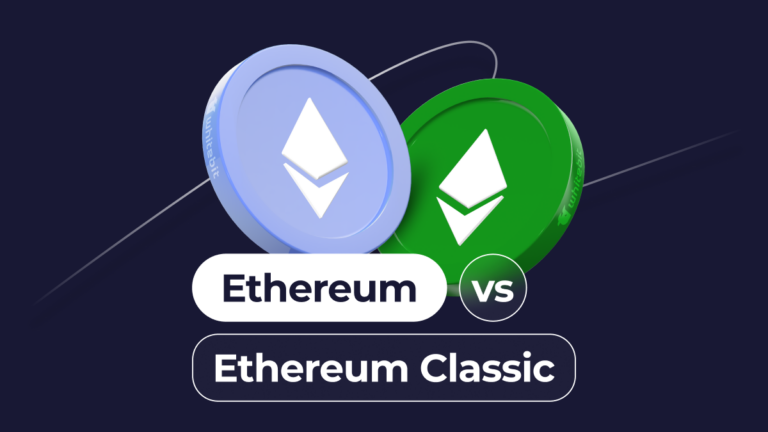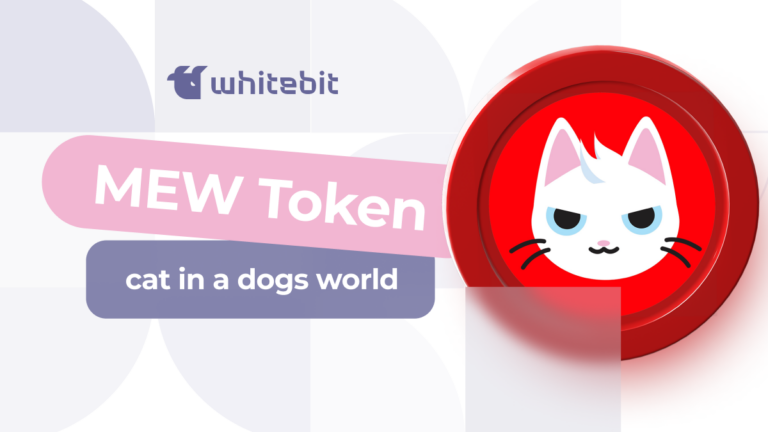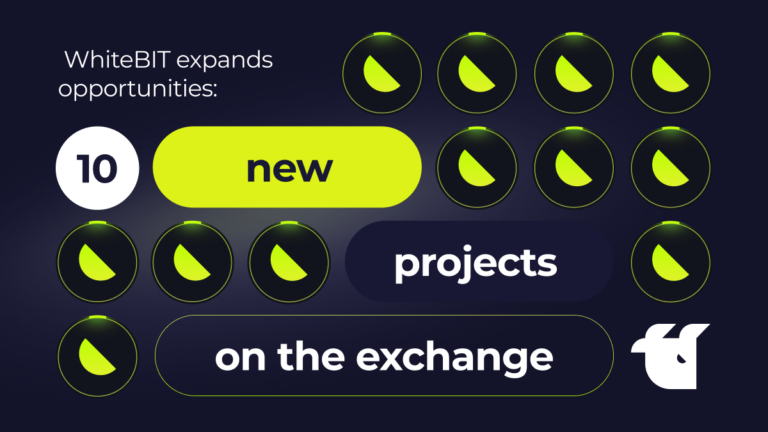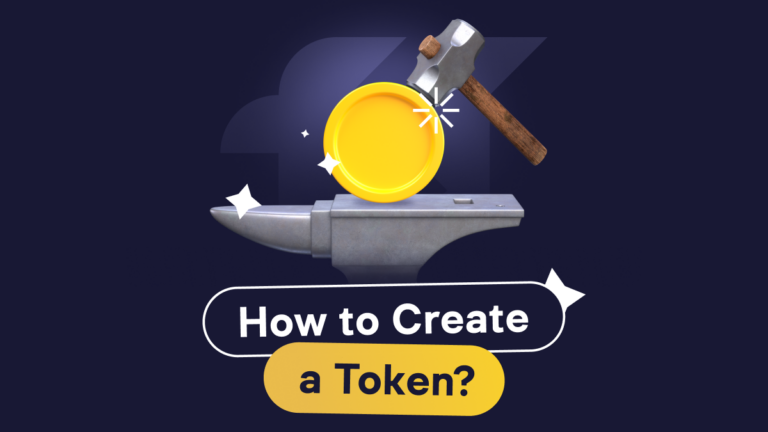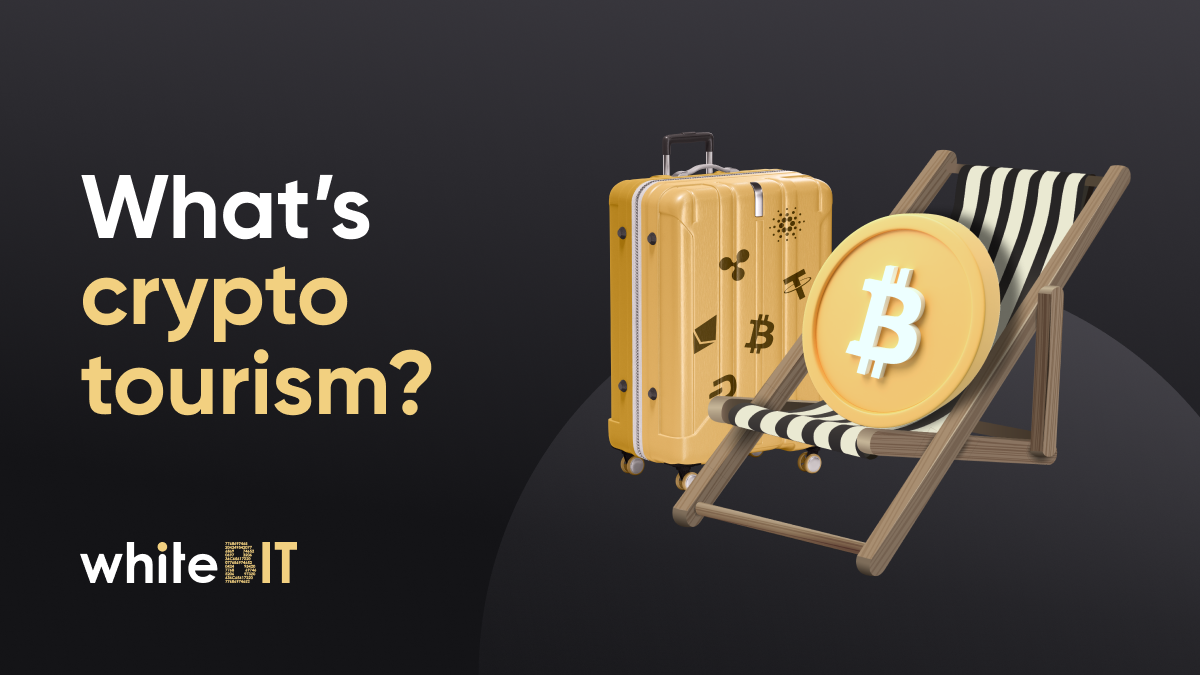What Is a Cryptocurrency Exchange? Everything a Beginner Needs to Know
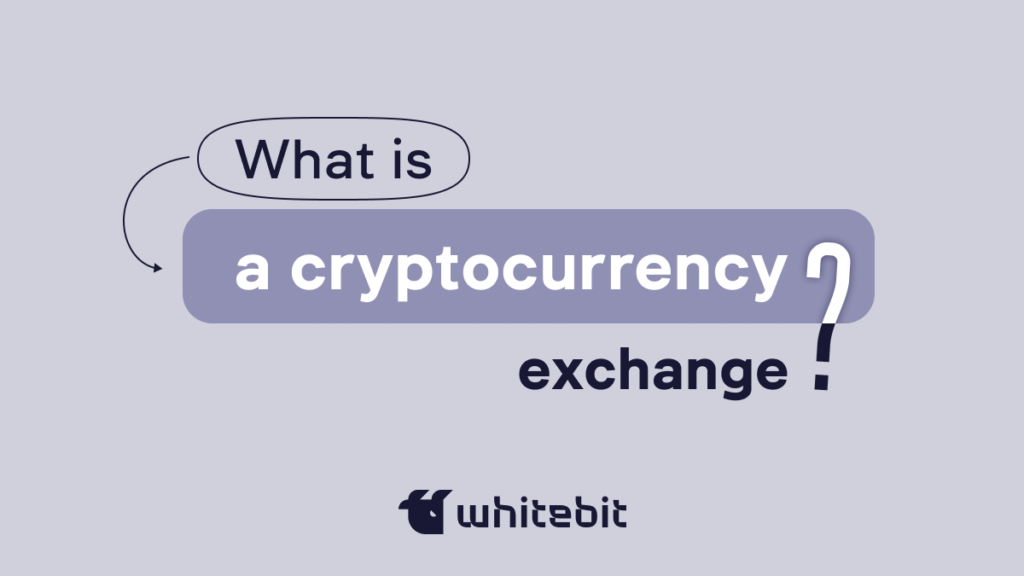
Content
There was a time when you had to find a seller on a forum like BitcoinTalk to buy cryptocurrency. But today, buying or selling digital currency is a matter of seconds. This article will help you understand how a cryptocurrency exchange works and how a beginner can get started.
What Is a Crypto Exchange?
Trading is simple — a seller and a buyer agree on a price and exchange with goods. You can trade assets, shares, bonds, commodities, and derivatives on regular exchanges. Those exchanges provide all the necessary infrastructure so the sellers and buyers can safely and easily trade with each other.
A cryptocurrency exchange is a platform where you can buy, sell, and trade crypto. A crypto exchange allows you to quickly swap one cryptocurrency for another or state currency for crypto. Thus, the exchange is an intermediary between the buyer and seller of cryptocurrency, ensuring such transactions’ security.
Before the first cryptocurrency exchanges appeared, people only bought Bitcoin by mining or through negotiations on various online forums. Now, most people who are interested in the crypto industry start their trading path on exchanges. Exchanges have simplified the process of getting acquainted with the crypto industry. Now it takes only a few minutes to buy your first Bitcoin.
The first crypto exchange, Bitcoin Market, appeared in March 2010, just a year after Bitcoin’s genesis block was mined. The price of BTC on the listing was $0.003. The first cryptocurrency exchange served its purpose well by moving trading from forums. But then it was replaced by other platforms, which better handled the increasing demand for Bitcoin trading.
Types of Crypto Exchanges
There are several types of cryptocurrency exchanges:
- Centralized exchanges (CEX);
- Decentralized exchanges (DEX);
- P2P platforms (Peer-to-Peer).
Let’s find out how they work.
CEX
Centralized exchanges (CEX) are platforms that become intermediaries between users who want to buy or trade cryptocurrencies.
Most exchanges support state currencies, allowing users to easily buy their first crypto and top up their balance using traditional payment systems, bank transfers, and other methods.
The main centralized crypto exchange features are an intuitive and user-friendly interface and numerous trading tools for interaction with cryptocurrencies. This mitigates the vast majority of the difficulties associated with using crypto.
Centralization allows the service to:
- Work in the legal field;
- Protect user assets;
- Have extensive functionality for trading;
- Work with fiat (state) currencies.
Such a crypto exchange is responsible for the safety of assets and helps restore account access if lost. As a rule, it has a built-in wallet for storing digital assets.
CEXs comply with the financial laws of the country where they were registered. For full access to the trading tools of the platform, the user needs to confirm their identity.
On the one hand, centralized exchanges contradict the main principle of blockchain technology: the absence of centralization, which is any control authority. On the other hand, the exchange administration has access to user accounts. Therefore, it can transfer data to government agencies and block an account or a specific transaction upon request.
On the other hand, centralized exchanges have a staff of specialists who ensure the protection of assets and data. Of course, no exchange will give a 100% guarantee against criminals, but there is a set of measures that CEXs apply to protect the balance of users. Among them:
- KYC (Know Your Customer) user verification — the procedure “Know Your Customer” allows the exchange to confirm the identity of the user and the latter to access all the functions of the platform;
- Customer Due Diligence (DD) — risk assessment of the client’s profile. It will show whether the user was involved in financial fraud;
- Transaction monitoring — specific actions that help to detect suspicious activity and, if necessary, suspend the account. This may help to protect the client’s funds if an attacker obtains access to their account;
- Cold storage is the storage of most assets on a wallet that is offline and difficult to access for a hacker attack;
- Monitoring of IP addresses by which the user enters the exchange. It helps to detect and notify the client about an unauthorized login to their account.
These measures are part of the AML and CFT complexes (anti-money laundering and countering the financing of terrorism), which ensure the reputation of the exchange and the protection of customers.
In addition, CEX platforms use additional features such as:
- Two-factor authentication (2FA);
- Anti-Phishing;
- Web Application Firewall (WAF);
- Temporary blocking of withdrawals after changing the email address or phone number;
- The function of setting session duration time and PIN for CEX applications.
Security measures may differ from exchange to exchange. However, any secure cryptocurrency exchange should support 2FA, KYC verification and store most of the users’ assets on cold wallets.
Read more about the basic security measures on cryptocurrency exchanges
For example, WhiteBIT has all of the above protection mechanisms. It also stores 96% of assets on cold wallets and uses WAF (Web Application Firewall) to block hacker attacks on time. In addition, the platform passed the Hacken.io audit, a leading cybersecurity service provider specializing in blockchain technologies. According to the audits of Hacken.io and the CER.live certification platform in 2022, WhiteBIT meets the highest security requirements and is among the top three exchanges in terms of reliability with the highest AAA rating.
DEX
Decentralized exchanges (DEX) are trading platforms that bring together cryptocurrency buyers and sellers, conduct all operations through blockchain transactions, and do not have a central authority. Unlike centralized exchanges (CEX), decentralized platforms do not hold users’ funds and do not require registration. Without a central authority, DEXs use smart contracts to execute the trades and record them on the blockchain.
The first decentralized platforms for trading on the Bitcoin network started appearing as early as 2014, but the real boom in the development of decentralized exchanges happened after the emergence of smart contracts on the Ethereum network and the implementation of the Automated Market Maker (AMM) technology.
DEX only needs liquidity providers and traders to operate successfully. Traders use the platform to make exchanges (swaps), and investors provide liquidity to DEX and receive a small fee percentage of each transaction.
Decentralized exchanges allow users to:
- Maintain anonymity;
- Make transactions directly from their wallet;
- Receive passive income;
- Trade without risk of account blocking.
Trading on DEX is easy, but newcomers might encounter new concepts, such as slippage, liquidity, impermanent loss, and others.
Decentralized exchanges, like centralized ones, allow you to buy cryptocurrencies with state currencies. However, on DEX, this feature is only available via partner services. Therefore, you must purchase digital assets and connect your crypto wallet to the exchange to start trading. While decentralized exchanges do not require KYC (Know Your Customer) verification, third-party services may request KYC verification before purchasing cryptocurrencies.
The disadvantages of DEX include the following:
- Lower liquidity compared to CEX;
- High exchange fees;
- A limited number of order types;
- Lack of ability to challenge transactions;
- Higher requirements to the user’s level of knowledge and awareness;
- Impossibility of high-frequency trading (the speed of order execution depends on confirming transactions in the blockchain).
For some reason, DEXs seem intimidating to newcomers. It might appear that experienced users mostly favor these platforms. However, you don’t need a master’s degree in blockchain technologies to use decentralized exchanges. For instance, take WhiteSwap — an AMM exchange (with an automated market maker) from the WhiteBIT ecosystem managed by the community. To make a trade on WhiteSwap, all you need to do is select the network (Ethereum, Tron, or Polygon), connect your wallet, choose the asset for buying or selling, and execute the trade. It’s that simple!
There is no centralized authority making decisions on WhiteSwap. This DEX is community-governed, meaning that decisions are made collectively by its participants. To facilitate this governance model, they use a WSD token. Its holders have the opportunity to participate in the development and decision-making processes of the project.
P2P Platforms (Peer-to-Peer)
Peer-to-Peer platforms (P2P) are platforms where users can buy and sell cryptocurrency or state currencies to each other. They work like a bulletin board, meaning buyers and sellers can view offers from other merchants or post their own.
Features of P2P platforms:
- No KYC verification;
- Independent selection of offers;
- Trading with escrow protection;
- Large selection of payment methods;
- Direct exchange of assets without intermediaries.
To trade on a P2P exchange, you need to register and create an offer. In it, you indicate the amount of the asset, the price, terms and payment method, transaction limits, and margin.
After the client has placed a buy/sell offer, the algorithm transfers required assets to a temporary deposit — an escrow system. The exchange won’t happen until both parties confirm the transaction.
All users on the P2P platform have a rating, based on which you can choose the transaction participants.
The advantages of P2P trading are:
- Minimal fees;
- The ability to withdraw crypto from the transaction;
- Intuitive interface.
At the same time, there are disadvantages:
- Low speed of transactions;
- Complete anonymity of users;
- The possibility of stumbling upon a fraudster.
However, some platforms successfully protect customers from fraudsters. For example, there are no commissions for buying/selling cryptocurrency on the Bitcoin Global platform. There is a mobile application, a telegram bot, and a wallet. Instant transfers using WhiteBIT codes and its deposit system are available on the platform. In case of an attempt to deceive the buyer, you can contact the support service, open a dispute and, if the decision is favorable, get the purchased assets back.
Difference between DEX and P2P Platforms
P2P platforms, like decentralized exchanges, do not involve third parties in trading; instead, users trade directly with each other. However, unlike DEX, P2P platforms allow trading with national currencies. Additionally, P2P platforms have an escrow system, which is absent in DEX. Also, transactions cannot be disputed on DEX. Therefore, P2P exchanges cater easily to the needs of newcomers and remain a convenient tool for experienced traders to work with national currencies. But DEX exchange is still a great option for those who value anonymity and decentralization.
How to Choose an Exchange?
Before choosing a crypto exchange, there are several important factors to consider.
How safe is the crypto exchange?
Hacker attacks are one of the biggest threats to cryptocurrency exchanges. To begin with, you should pay attention to how seriously the exchange pays attention to its security measures. Such as:
- Two-factor authentication;
- Reliable security measures against phishing scams, attacks, and other theft attempts;
- Biometric login support;
- How many assets are stored on a cold wallet;
- KYC standards (the need to provide a government-issued identification document before opening a new account on a cryptocurrency exchange).
How Many Trading Pairs Are There?
Coins with higher market capitalization are more often present on most exchanges. Therefore, investors looking for more exotic assets should pick platforms with many pairs. There will likely be both the most popular and not very well-known coins.
What National Currencies Are Available?
If you are interested in exchanging fiat for cryptocurrency, decentralized exchanges are off the table due to higher fees and more complex procedures. So, in this case, the choice between different CEX and P2P platforms will depend on whether they have the national currency you need.
What Are the Fees?
Fees will accompany all transactions on cryptocurrency exchanges. The largest platforms usually have transaction fees of 0.2% or lower. However, remember that even on the same exchange, fees may differ depending on the type of trade.
Are There Opportunities to Earn Passive Income?
Although the primary exchange’s feature is to allow users to buy and sell virtual assets, many of them introduce reward programs to increase their wealth. The terms and bonuses will depend on the platform. Also, some platforms offer to open Crypto Lending plans. For example, WhiteBIT Earn offers crypto lending plans at interest rates ranging from 0.3% to 25.85% of yearly income on certain assets.
Why Choose WhiteBIT?
WhiteBIT is one of the largest European centralized cryptocurrency exchanges. More than 270 crypto assets and 10 state currencies are already on the exchange. WhiteBIT has more than 4 million registered clients worldwide. The highest average daily trading volume is over $2.5 billion.
WhiteBIT is an ecosystem that includes the following:
- Trading on spot, futures, and margin markets.
- WhiteBIT Coin (WBT) — the exchange’s coin, offering users numerous advantages when using WhiteBIT products. These benefits include discounts on trading fees of up to 100%, an increased referral rate of up to 50%, daily free AML checks, fee-free withdrawals of ETH and ERC20 tokens, and much more.
- WhiteBIT codes — instant and free crypto transfers between wallets on the exchange;
- Whitepay — cryptocurrency payment processing solution;
- WhiteBIT Earn — a system that provides an opportunity to receive passive income from long-term investments in digital assets;
- WhiteSwap (AMM DEX) is a safe and convenient decentralized exchange running on the Ethereum and Tron blockchains;
- Trading tournaments are one of the activities on WhiteBIT that allow you to expand your collection with new crypto assets by achieving the highest trading volume in specific trading pairs;
- Anti-Money Laundering (AML) — a web page for checking an address for involvement in money laundering;
- WhiteEX — physical cards for replenishing the balance on the WhiteBIT exchange.
Also, WhiteBIT clients have a wide range of earning opportunities.
Trading
Registered users can trade with their own (Spot) and borrowed funds (Margin/Futures). The leverage can be set from the available values — from x1 to x10 and from 1x to 100x for futures trading.
Users can use Limit, Market, Stop, and OCO orders to buy and sell coins.
Activities
Registered users of the exchange have access to numerous platform activities. Typically, these are trading tournaments, meme battles, quizzes, and giveaways. In addition, each activity raffles off a generous prize pool in cryptocurrency.
Crypto Lending Plans
On the exchange, you can also earn rewards for depositing cryptocurrencies for a fixed period into Crypto Lending plans. By locking assets in these plans for different durations, you can earn returns ranging from 0.3% to 24.85% annually in cryptocurrency.
Thus, with WhiteBIT, users get an easy-to-use product that helps them get acquainted with the crypto sphere and discover promising profit methods.
FAQ
A cryptocurrency exchange is a platform where registered individuals or companies can buy, sell, and trade crypto. The exchange acts as an intermediary that ensures the security of transactions.
The difference in the work of crypto exchanges depends on their type. There are the following types of cryptocurrency exchanges:
Centralized exchanges (CEX) are platforms that facilitate buying, selling, and storing cryptocurrencies, offering a variety of features such as margin trading, margin lending, cryptocurrency derivatives trading, staking on the exchange, and many other functions.
Decentralized exchanges (DEX) work without intermediaries, and transactions are executed on the blockchain, making them more suitable for experienced users and those who value anonymity and decentralization.
Peer-to-peer exchanges (P2P) allow users to exchange cryptocurrencies and state currencies directly with each other without involving a third party.
For WhiteBIT, the key priority is the security of customer funds. Therefore, compliance with all security rules is the basis of our work. We store 96% of digital assets on cold wallets and use Web Application Firewall (WAF) to detect and block hacker attacks, so your assets on WhiteBIT will be safe.
According to audits by Hacken.io and the CER.live certification platform in 2022, WhiteBIT meets the highest security requirements and is one of the top three exchanges regarding reliability with the highest AAA rating.
Our exchange was founded only in 2018, and it already offers more than 350 trading pairs, 270+ assets, and 10 state currencies. More than 4 million registered WhiteBIT clients have experienced low trading fees of up to 0.1% and tried the convenient mobile application with an intuitive interface and access to trading.


